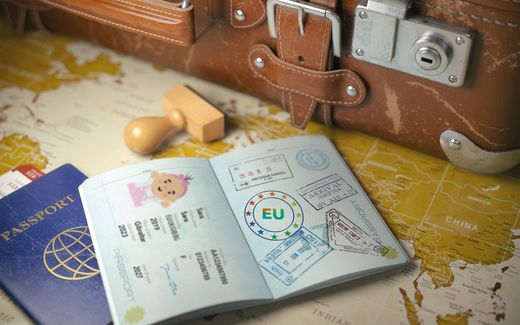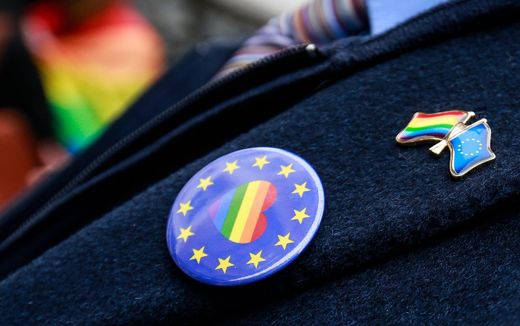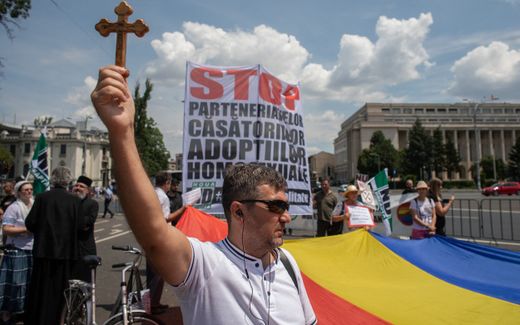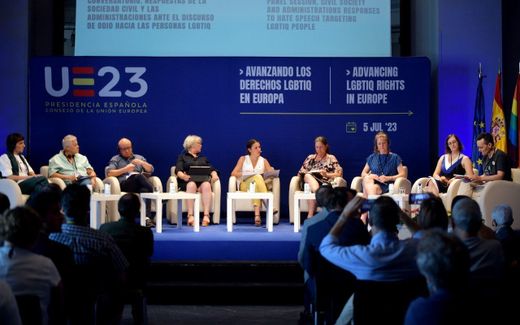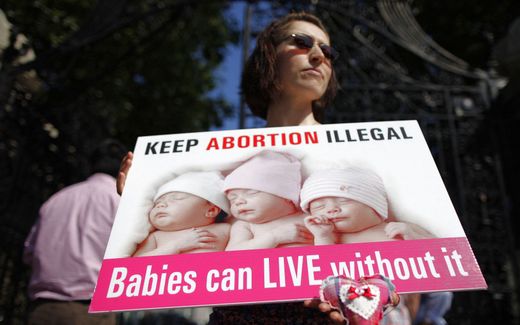EU adopts new strategy to push LGBT rights in member states
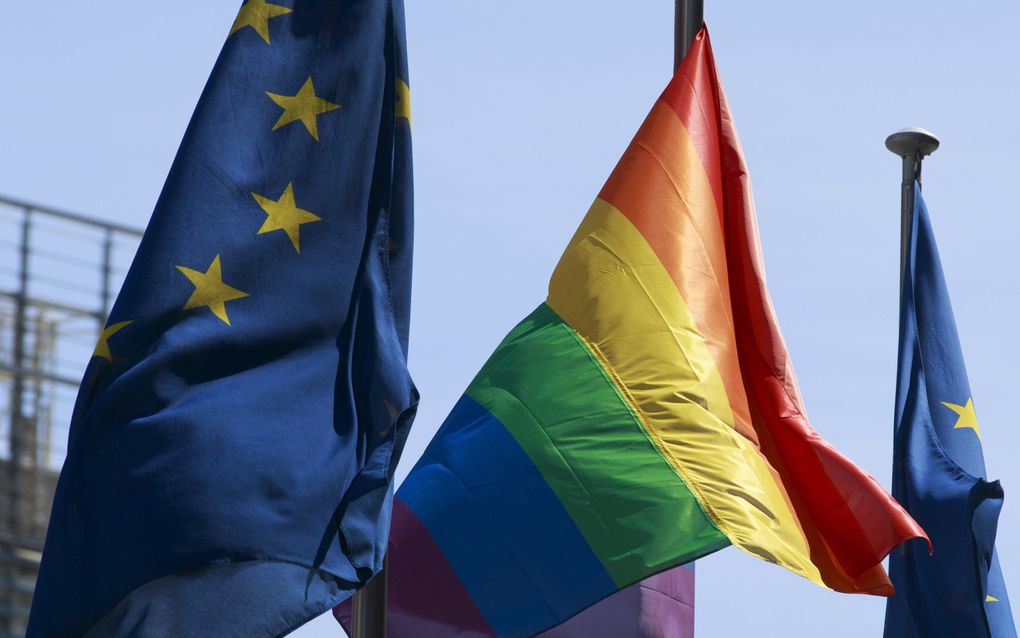
The rainbow flag and the European flag are positioned next to each other in Brussels. Photo EPA, Olivier Hoslet
European Union
With its new LGBT equality strategy, the European Commission aims to assist member states in banning conversion therapy.
The European Commission's LGBTIQ+ equality strategy 2026-2030 did not come out of nowhere. Back in 2020, the European Union's executive body adopted an initial strategy for LGBT equality for 2020-2025, the Dutch daily Reformatorisch Dagblad writes. When Hadja Lahbib took office as European Commissioner for Equality last year, Commission President Ursula von der Leyen tasked her with developing a new strategy. With these plans, the Commission aims to tackle violence and intimidation against LGBT people and help member states ban conversion therapy.
The Commission notes that people in the EU have become more positive about gay, lesbian, and transgender people over the past five years. Nevertheless, a quarter of all LGBT people and almost half of transgender people experience violence or humiliation.
Cyberbullying
That has to change, Lahbib believes. With the strategy presented on Wednesday, she wants to better protect LGBT people and transgender people against violence and discrimination. Inciting hatred, both online and offline, should henceforth be punishable under European law, and Brussels is working on an action plan to protect queer youngsters against cyberbullying.
The plan includes more action points. For example, Brussels wants countries that have not opened marriage for same-sex couples to recognise same-sex marriages concluded in another EU Member State. There will also be a ban on discrimination against LGBT people at work or when looking for a job.
In addition, the European Commission wants to make progress with what is known as self-identification legislation, that provides people with the possibility to change their legal gender easily. The new strategy wants to remove age restrictions for self-identification, the Telegraph writes. To do so, the European commission “will facilitate exchanges of best practices among member states to support the development of legal gender recognition procedures based on self-determination that are free from age restrictions.”
Petition
Furthermore, the EU will invest billions in projects to combat discrimination in the coming years.s Between 2028 and 2034, Brussels wants to allocate 3.6 billion euros for this purpose.
Most striking is the Commission's plan to help all Member States ban conversion practices. In taking measures, Brussels is looking at a recent European citizens' initiative calling for criminalisation of conversion therapy and its promotion. This petition was signed by more than one million EU citizens, Euractive writes.
In September, the Dutch House of Representatives passed a private member's bill that makes it a criminal offence to attempt to change someone's sexual orientation, for example through electroshock therapy or faith healing. Discussions within churches about sexual identity, even if they are dismissive, remain permitted. Nevertheless, the Christian parties in the Netherlands are concerned about the impact of the law on pastoral discussions.
Sexuality
The European Evangelical Alliance (EEA) warned against an EU-wide ban on conversion therapy. In an open letter, the organisation said that the consequences “could be serious” because this might “prevent people from having the counselling, prayer or teaching they choose”. Moreover, it could bring the “Scriptural standards“ of a faith community in danger, the EEA warned. The teaching of the Bible is clear that sexual activity is God’s gift to be enjoyed only within monogamous marriage between one man and one woman, the organisation emphasises.
MEP Bert-Jan Ruissen from the European ECR party is also strongly opposed to the Brussels proposal to help Member States ban conversion practices. “The Commission has no say in this matter; family law and criminal law are the responsibility of the Member States. Moreover, a ban often means that there is only one form of help available for vulnerable young people or adults who are unsure about their sexuality: help that confirms their sexual orientation.”
He is also afraid that pastoral conversations and the Christian notion of marriage and sexuality can be criminalised if EU member states follow the new guidelines. “This goes against freedom of religion”, he says in an interview.
For the Christian MEP, it is clear: “The Commission is insisting on imposing gender ideology, same-sex marriage and, indirectly, even the legalisation of surrogacy on Member States.”
ILGA Europe, the umbrella organisation that advocates for the rights of LGBT people in Europe, is also critical of the new strategy, calling the vision document less ambitious than the previous one from 2020. The organisation had hoped that the Commission would take tougher action against countries that “violate the rights of LGBT people”.
According to ILGA Europe, many measures look good on paper, but will not improve the daily lives of LGBT people. The strategy is not legally binding for member states.
Related Articles


